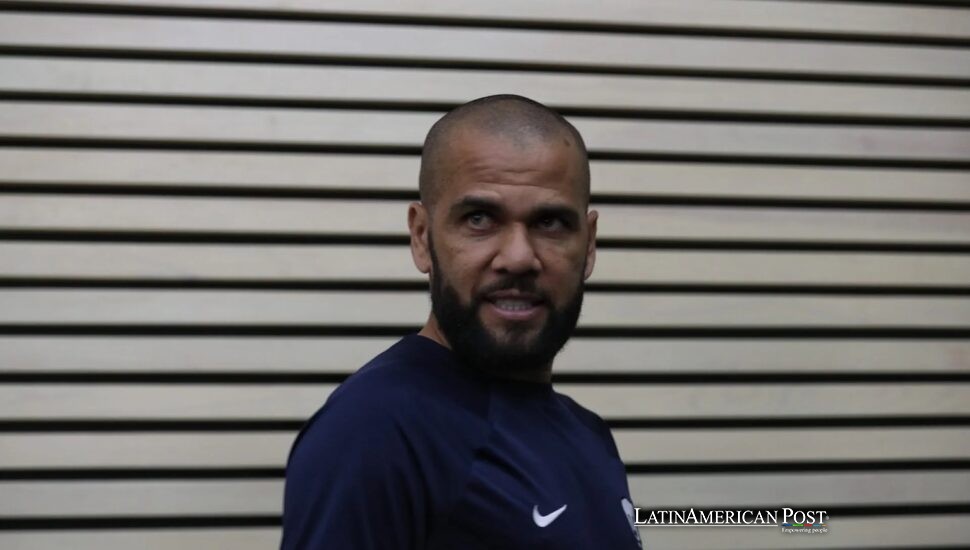Why Spanish Court Overturned Brazilian Dani Alves Rape Case Verdict

In a landmark ruling under Spain’s “only yes means yes” framework, the High Court of Catalonia (TSJC) has cleared Brazilian soccer player Dani Alves of rape charges. Citing “unreliable testimony” from the accuser, the decision now faces possible review by the Supreme Court.
A High-Profile Case Under Scrutiny
Brazilian footballer Dani Alves once faced a four-and-a-half-year prison sentence for the alleged rape of a young woman in a Barcelona nightclub bathroom. The Barcelona Court’s initial verdict applied Spain’s newly enacted “only yes means yes” legislation, which underscores the need for explicit consent at each stage of a sexual encounter.
Under that judgment, Alves’s jail time was somewhat mitigated by depositing 150,000 euros with the court for potential compensation. This step triggered a debate about whether financial reparations should ever reduce punishment in a sexual assault case. At the same time, the prosecution and the accuser’s private counsel argued that the sentence was too lenient, given the seriousness of the charges.
However, the Superior Court of Justice of Catalonia (TSJC) has overturned Alves’s conviction. According to public documents reviewed by EFE, the court’s panel—three female and one male judge—determined that inconsistencies in the complainant’s statements prevented the prosecution from meeting the high evidentiary standards required to uphold a criminal conviction. Specifically, the judges found that video footage, fingerprint analysis, and DNA evidence did not conclusively match the woman’s account of non-consensual activity.
In Spain’s legal landscape, this case became the first high-profile test of the “only yes means yes” law, fueling intense public discussion about the definitions of consent and the thresholds of proof in assault proceedings. The TSJC ruling arrives at a time when Spanish society is sharply focused on the judiciary’s treatment of sexual violence claims, especially after several reforms intended to protect victims better and clarify the notion of consent.
The Evidence That Undid the Verdict
In the days following the alleged incident, investigators gathered extensive footage from security cameras inside and around the nightclub. Reviewing these videos, the TSJC concluded that the actions of both Alves and the young woman were inconsistent with the original accusation. Although the court did not interpret their earlier interactions as proof that a sexual assault could not have occurred, the footage appeared to contradict key parts of the complainant’s testimony regarding her level of discomfort before entering the bathroom.
Furthermore, fingerprint and DNA analyses offered no definitive support for the prosecution’s version of events. While forensic experts detected traces of both Alves’s and the alleged victim’s prints in the bathroom, the TSJC ruling contends that such evidence could align equally well with a consensual scenario. As a result, the judges found themselves forced to weigh multiple plausible narratives—an evidentiary puzzle that ultimately favored the defendant’s presumption of innocence.
During the initial trial, the Barcelona Court acknowledged some “deficiencies” in reconciling the complainant’s account with what the security footage depicted. However, the court concluded that her statements around the “core facts” remained coherent. According to the prior judgment, any apparent inconsistencies did not destroy her credibility, mainly when set against Alves’s evolving explanations over time. Yet the TSJC took a different stance, highlighting the need for “heightened caution” when conviction hinged heavily on a single testimony.
In the newly issued opinion, the TSJC also expressed doubts regarding statements provided by the woman’s friends, who said they sensed pervasive unease in the nightclub. Camera evidence and witness testimony suggested an atmosphere of friendly conversation, dancing, and shared drinks, casting doubt on the group’s depiction of discomfort. Additionally, one of the accuser’s friends exchanged cordial farewells—and later text messages—with a friend of Alves, which the higher court deemed inconsistent with a setting of profound alarm or tension.
Presumption of Innocence and Ongoing Debate
Despite its decision, the TSJC did not assert that Alves’s defense version—that the sexual encounter was consensual—was definitively proven. Instead, the judges underscored that Spanish and European legal standards require the prosecution to eliminate “reasonable doubt” before finding guilt. Because they concluded the discrepancies in testimony were too significant, the judges believed the case fell short of that threshold.
In statements attributed to EFE, the prosecution team said it was weighing a further appeal to the Supreme Court. The complainant’s attorney, Ester García, has argued that the TSJC failed to give full weight to psychological assessments indicating symptoms of post-traumatic stress in her client. According to García, those clinical findings are a strong indicator that the woman experienced actual harm resulting from a non-consensual act. However, the TSJC claimed the evidence could not conclusively differentiate between trauma from the alleged assault and stress tied to subsequent media exposure and legal proceedings.
During the trial, Alves faced widespread criticism for offering multiple versions of what occurred inside the bathroom. Prosecution lawyers, joined by the private accuser, pointed to these contradictions as proof of guilt. Alves’s defense, led by attorney Inés Guardiola, insisted that changes in his account were the product of fear and confusion rather than evidence of wrongdoing. The new ruling appears to side with the defense’s argument that the defendant’s inconsistent statements did not automatically confirm a criminal act, especially in the absence of unambiguous forensic or video corroboration.
The public reaction to Alves’s absolution is already shaping further debate. Activists for survivors of sexual violence worry that this outcome, combined with the initial reduction of the sentence based on financial compensation, signals a step backward for Spanish jurisprudence on assault and consent. Meanwhile, other legal experts caution that the outcome underscores the complexities of adjudicating sexual crimes—where private interactions, conflicting narratives, and heightened emotional stakes can complicate the pursuit of certainty.
Ultimately, the TSJC judgment emphasizes that an acquittal does not necessarily vindicate the defendant’s account but highlights the legal principle that convictions require robust, contradiction-free evidence. Should the Supreme Court take up the case, it will examine whether the TSJC appropriately balanced the expanded notions of consent under the new law with Alves’s constitutionally enshrined presumption of innocence.
Also Read: Brazil’s Top Court Keeps Robinho in Prison
Coverage of the case has revealed just how polarizing this trial has become. Supporters of Alves celebrate the ruling as a necessary safeguard for defendants, while survivors’ advocates argue the court is effectively ignoring a complainant’s testimony by dismissing it as unreliable. Either way, the debate surrounding Spain’s “only yes means yes” law—and how courts navigate sexual assault allegations—will persist, as Dani Alves’s case symbolizes the delicate intersection of legal reforms, societal expectations, and individual rights.




